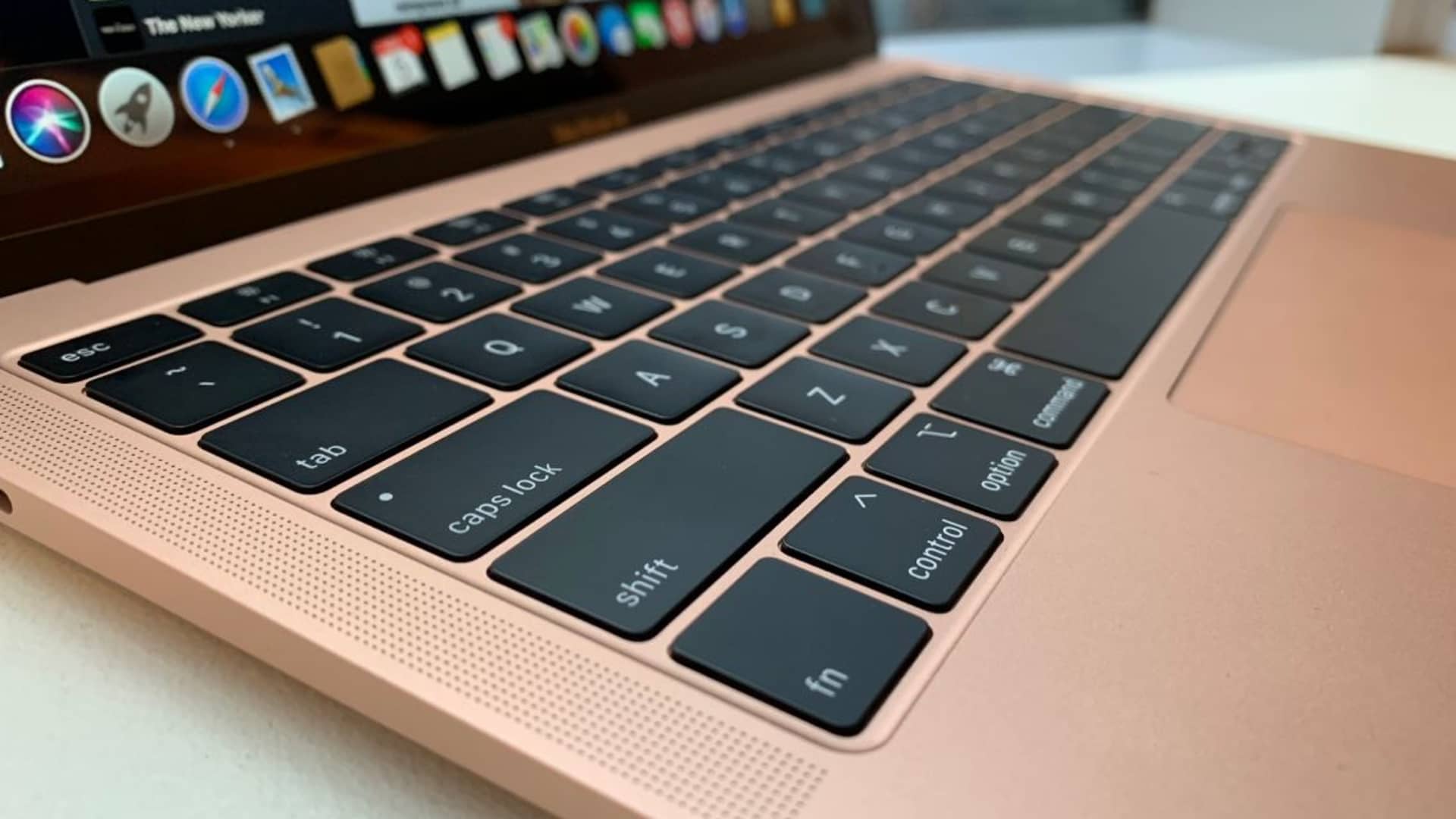Apple agrees to pay up to $395 to MacBook owners who replaced ‘butterfly’ keyboards

Apple agreed to a $50 million settlement in a class-action lawsuit on Monday night over the company’s “butterfly keyboard,” which was installed on MacBook laptops between 2015 and 2019.
The settlement will likely lead to payouts to customers in seven U.S. states including California, New York, and Florida who replaced keyboards or key caps at an Apple store or authorized repair center, according to settlement documents reviewed by CNBC.
Payouts could range from $300 to $395 for people who replaced multiple keyboards, up to $125 for people who replaced one keyboard and as much as $50 to people who replaced a single keycap, lawyers said in the settlement.
The settlement brings a close to an infamous era in Apple product design. Apple did not admit wrongdoing or guilt in the settlement.
Apple initially introduced the butterfly keyboard as an innovation that could enable its laptops to become even thinner. But customers said that Apple’s butterfly keyboards were prone to failure and could be damaged by a speck of dust — causing the keyboard to repeat letters unexpectedly or fail to register key presses at all.
The butterfly keyboards were unpopular, and their flaws inspired songs and long complaints. One influential Apple blogger called the keyboard the worst product “in Apple history.” Apple apologized for the issues in a corporate statement and introduced a service program to replace the keyboards for free starting in 2019.
Eligible laptops include MacBooks, MacBook Airs and MacBook Pros sold between 2015 and 2019. The cost to repair an out-of-warranty butterfly keyboard during that period could range up to $475.
Apple phased out the butterfly keyboards starting in 2019, returning to a more traditional “scissor switch” design. Since then, Apple posted 11% growth in its Mac business in 2020 and and 23% growth in fiscal 2021 to top $35 billion in sales.
However, the growth in Apple’s Mac business could have also been driven by the pandemic, which boosted PC sales as people worked from home, as well as the company’s introduction of its internally designed M-series chips, which improve battery life and responsiveness.
The settlement will need to be approved by a judge.




